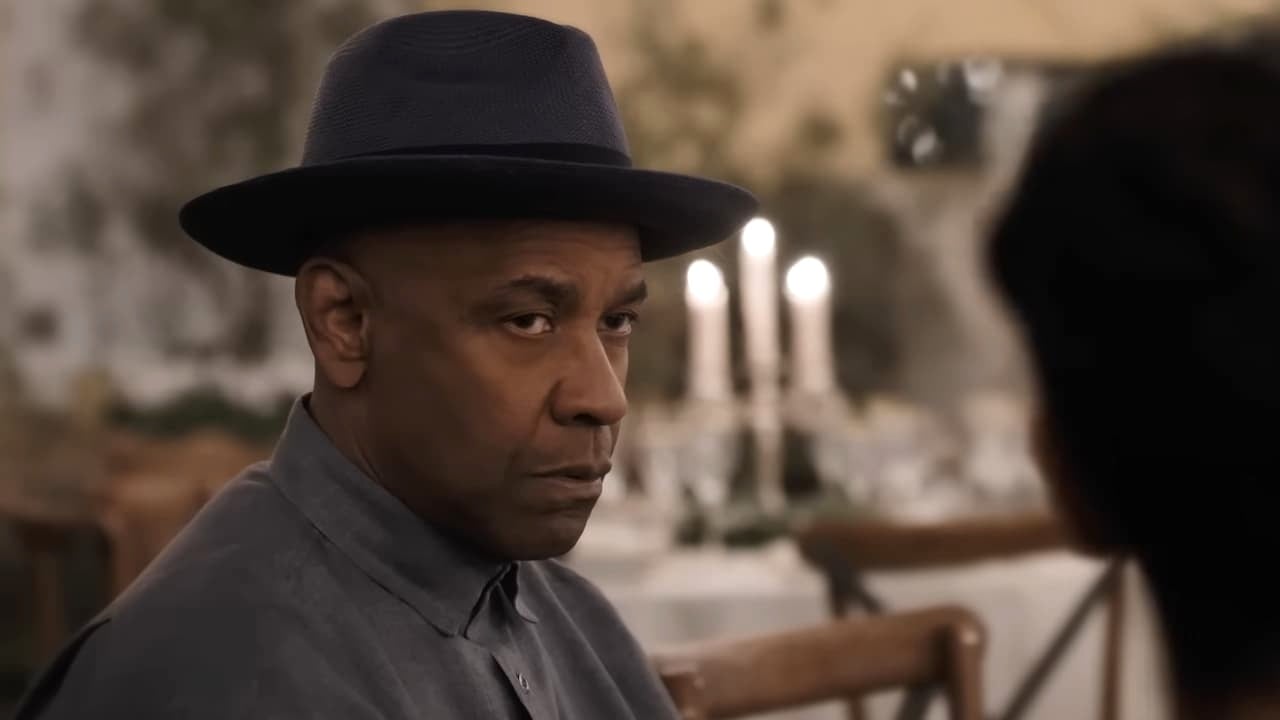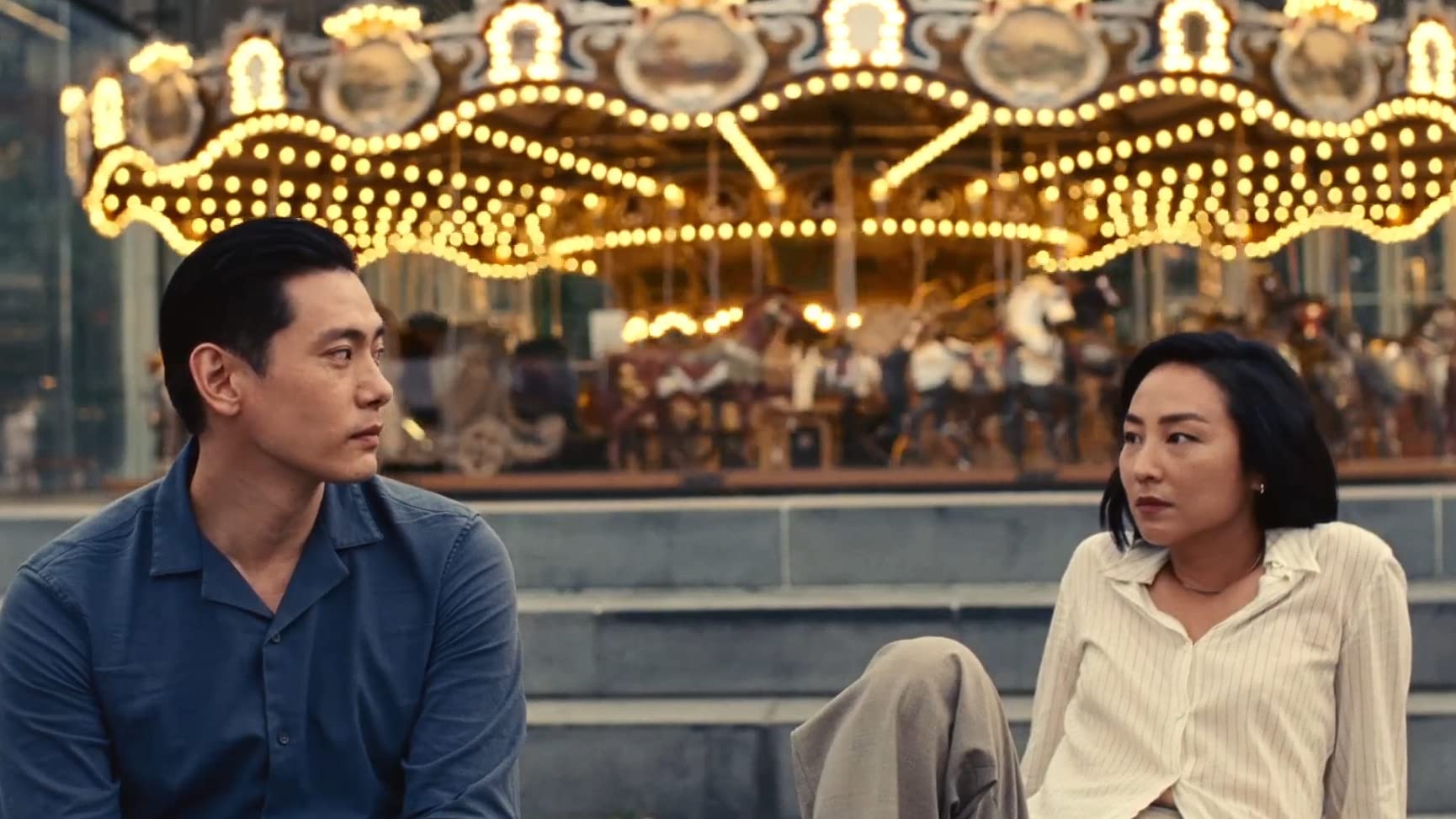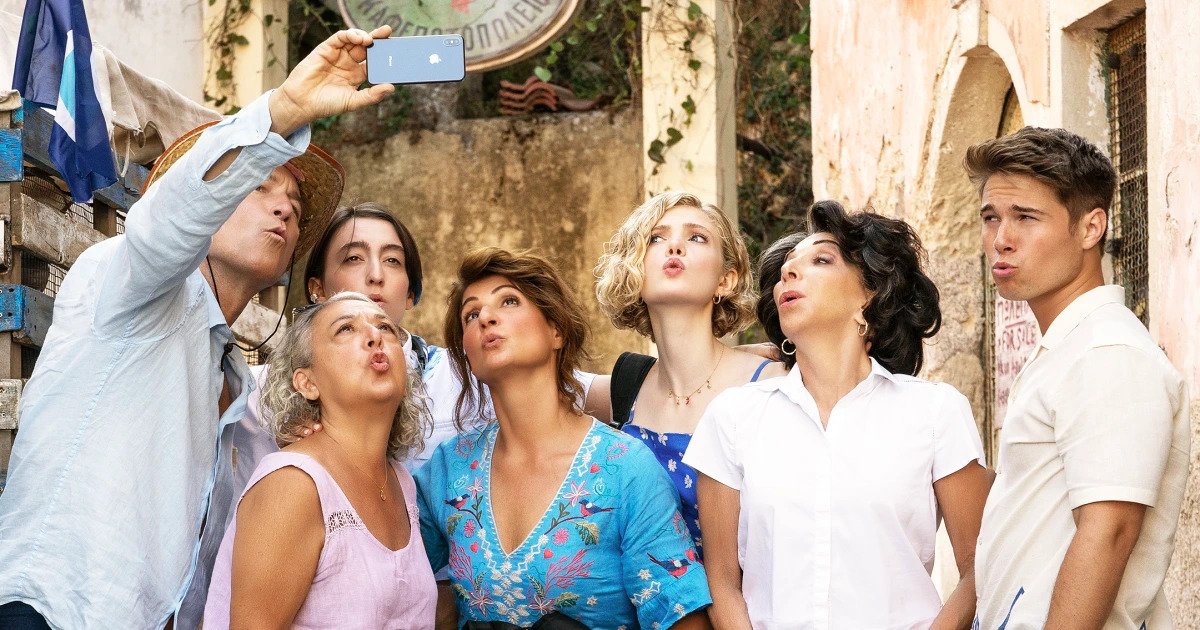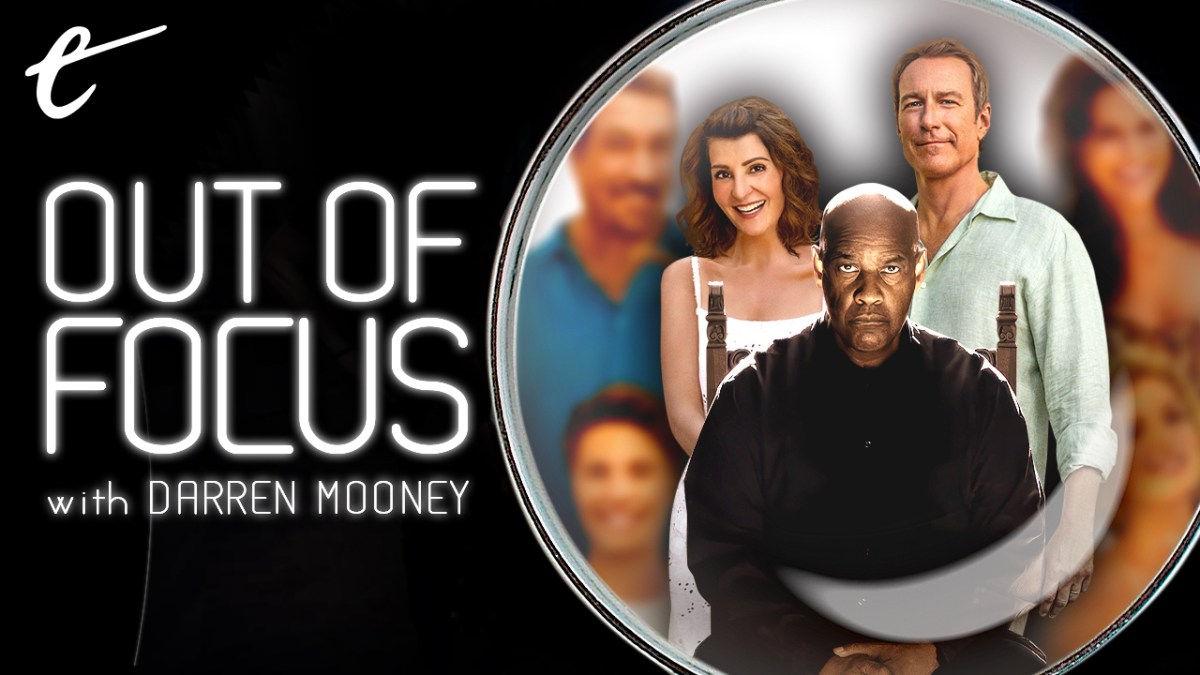This discussion about post-pandemic vicarious vacations contains brief spoilers for The Equalizer 3 and My Big Fat Greek Wedding 3.
There is a surprising amount of narrative and thematic overlap between The Equalizer 3 and My Big Fat Greek Wedding 3, even beyond their function as trilogy-cappers.
Although The Equalizer 3 is a gritty revenge thriller and My Big Fat Greek Wedding 3 is a broad romantic comedy, they are both movies with surprisingly low stakes. In The Equalizer 3, there is never any doubt or tension concerning Robert McCall’s (Denzel Washington) confrontation with local crime lord Vincent Quaranta (Andrea Scarduzio). McCall is never in any real danger. There is never a sense that these local criminals could be anything other than a mild irritation to him.
Similarly, the stakes in My Big Fat Greek Wedding 3 are remarkably low. There is no doubt that Paris (Elena Kampouris) and Aristotle (Elias Kacavas) are going to end up together by the end of the film. While the characters worry that nobody else is going to turn up, there is no chance that Victory’s (Melina Kotselou) planned reunion will pay off without a hitch. Even the forbidden love between Qamar (Stephanie Nur) and Christos (Giannis Vasilottos) is amicably resolved in a handful of scenes.
My Big Fat Greek Wedding 3 is a movie entirely about good vibes. Nobody ever has any profound disagreements. There are no conflicts. About one third of the scenes end with characters enthusiastically embracing one another. Throughout the film, Toula (Nia Vardalos) and her husband Ian (John Corbett) fear that their daughter Paris is keeping a secret from them. When it turns out that she is on academic probation from college, there are some raised voices, but it’s quickly forgotten.
Of course, this makes a certain amount of sense. While they have different tones and belong to different genres, both The Equalizer 3 and My Big Fat Greek Wedding 3 are essentially vacation movies. They ship the characters (and the audience) across the ocean from the United States to Europe. As such, it is only fitting that the films should have a gentle tone. Nobody takes a holiday to be stressed out — even unstoppable killing machines like Robert McCall.

While The Equalizer 2 included brief excursions to Istanbul and Brussels, the bulk of the first two Equalizer films unfolded around Boston. However, the cold open of The Equalizer 3 finds Robert McCall dealing with organized crime in Sicily, having followed a money trail. The first two Big Fat Greek Wedding movies focus on a family of Greek immigrants in Chicago, but the third film finds the entire Portokalos family decamping to visit the homeland.
The Equalizer 3 and My Big Fat Greek Wedding 3 are not anomalies. There has been a wave of recent movies that feature characters taking big trips abroad. These are often sequels to established properties. In Downton Abbey: A New Era, Robert Crawley (Hugh Bonneville) leads half the cast on a trip to a villa in the South of France. Book Club: The Next Chapter finds the eponymous quartet taking a trip to Italy. Magic Mike’s Last Dance sends Mike (Channing Tatum) to London.
As with so many modern movies, these films rarely acknowledge that there was a recent global crisis that severely restricted people’s capacity to travel internationally. Obviously, A New Era is a period film, but the others seem to be set contemporaneously. The biggest exception to this “don’t mention the pandemic” rule may be George Miller’s Three Thousand Years of Longing, in which traveling academic Alithea (Tilda Swinton) is shown wearing a mask on her trip to Istanbul.
Of course, during the early days of the pandemic, one of the easiest ways to produce a piece of media was to structure it around the idea of a vacation, to take the cast and crew to a remote and isolated location to minimize the risk of infection or transmission. So many of the pandemic’s early films were resort stories like Mike White’s The White Lotus or M. Night Shyamalan’s Old. However, those were about specific fictional places, not tours of real cities or countries.
Other related trends are working their way through pop cinema. The past few years have seen a resurgence in adventure movies set overseas, like Bullet Train and Operation Fortune: Ruse de Guerre. There have also been some old-fashioned globe-trotting archeological action movies, like Uncharted or Indiana Jones and the Dial of Destiny. Beyond that, there are obviously new entries in long-running franchises built around this template, like No Time to Die or Mission: Impossible – Dead Reckoning, Part One.
There is also a renewed emphasis on stories of (often second-generation) immigrants exploring their relationship between their American and their original identities. This trend goes back a little bit earlier than the previous examples, extending to Jon M. Chu’s Crazy Rich Asians and Lulu Wang’s The Farewell, and continuing to recent films like Adele Lim’s Joy Ride or Celine Song’s Past Lives. All of these movies are about young women trying to navigate complicated questions of identity.

Although there are certainly echoes of this subgenre in My Big Fat Greek Wedding 3 — another story about a female character returning to her parents’ homeland — it is arguably its own thing. It perhaps makes sense to think of movies like Crazy Rich Asians, The Farewell, Joy Ride, and Past Lives as a response to the rise of ethno-nationalism in contemporary American politics and the increase in racism against Asian Americans. It is only reasonable that these movies would find Asian characters looking overseas to explore their identity.
In contrast, movies like The Equalizer 3, My Big Fat Greek Wedding 3, Downton Abbey: A New Era, Book Club: The Next Chapter, and Magic Mike’s Last Dance are doing something quite different. These movies often feel like travelogues. They take audiences to exotic international settings and allow them to luxuriate in the beauty. It provides an opportunity for the audience to imagine what it might be like to venture to Europe and experience the culture and climate.
Cinema has always done this. Travelogues were very popular during the 1950s. Hollywood embraced widescreen formats like Cinerama to combat the rise of television and to serve audiences who were more curious about the outside world in the wake of the Second World War, releasing movies like Search for Paradise or Seven Wonders of the World. The highest grossing film of 1955 in the United States was Cinerama Holiday, a documentary about two couples touring Europe and America.
The more recent wave of travelogue films feels like a response to the recent global pandemic — an extended period in which people were expected to lockdown and shelter in place. After years of relative isolation, it makes sense that individuals would be eager to travel the world again, whether literally or figuratively. Over the past year, there has been a resurgence in American tourists traveling to Europe, despite an inflation crisis. In some ways, these films reflect that same impulse.
It’s worth acknowledging that there is also a demographic factor at play here. As a rule, films like The Equalizer 3 and My Big Fat Greek Wedding 3 are aimed at older audiences. 49% of the audience for The Equalizer 3 was over 45, with the largest individual demographic (26%) over 55. 48% of the opening weekend audience for Downton Abbey: A New Era was over 55. That demographic made up the exact same percentage of the audience for Book Club: The Next Chapter.
This is notable for two reasons. First, that older audience has been reluctant to return to theaters following the pandemic, perhaps because they feel underserved or perhaps because of lingering health risks. Secondly, and perhaps relatedly, for that demographic the pandemic is still real. Older people are obviously at greater risk from the disease, and even those who want to travel now face steeper premiums and tighter restrictions, making vacations more expensive and prohibitive.

As such, these movies offer a less risky and more affordable way to vicariously experience international tourism, whether it’s Robert McCall sipping a morning coffee as local football supporters fill up the town square or Toula Portokalos getting day drunk while negotiating with local small-town shopkeepers. It’s no wonder that The Equalizer 3 includes a small scene in which McCall criticizes a young CIA operative (Dakota Fanning) for reading the wrong tourist guidebook.
That said, many of these movies feel like post-pandemic films in other more subtle ways. Most obviously, there is a frequent recurring subtext of mortality that creeps in around the edge of the frame, a cinematic memento mori. The opening sequence of The Equalizer 3 ends with McCall getting shot in the back and attempting suicide, only to find his way to a small-town doctor (Remo Girone) who tends to his wounds and aids his recovery. However, even the gentler examples of this trend constantly remind the audience of the characters’ mortality.
The first Downton Abbey movie ends with the Dowager Countess (Maggie Smith) acknowledging that she received a terminal diagnosis. This colors much of A New Era, in which she reveals that a former lover, the Marquis de Montmirail, gifted her a mansion. The Marquis has died and, contemplating her own mortality, the Dowager Countess bequeaths that mansion to her own great-granddaughter, Sybbie (Fifi Hart). The movie ends with the Dowager Countess’ death, her portrait hanging in the wall.
This theme of death and loss is most pronounced in My Big Fat Greek Wedding 3, in which the return to Greece is in part motivated by the death of Toula’s father, Gus (Michael Constantine). Indeed, Toula’s brother, Nikos (Louis Mandylor), has smuggled their father’s remains back to Greece, in the hope of scattering them in the shade of the village’s biggest tree. There is a surprising tenderness to this, which perhaps informs the gentleness of the movie around it.
However, Gus’ death is not the only loss that the characters have experienced. Toula and Nikos’ mother, Maria (Lainie Kazan) is suffering from a degenerative condition, and is increasingly unaware of her surroundings and the faces of her family. That is its own form of loss. In a quiet conversation at a seaside café, Tuola tenderly acknowledges that her husband Ian also lost his father over the previous year. The pandemic and the virus are never mentioned, but that sense of parental loss resonates.
It may be years before we can properly assess the impact of the pandemic on the kind of popular culture being produced. Certainly, there has been a marked increase in movies directed by actors, often gestated during lockdown. There is also an increasing trend of auteur-driven movies about isolated and quarantined communities, like Asteroid City, Knock at the Cabin, and Oppenheimer. However, it feels important to acknowledge the rise of the post-pandemic travelogue.






Published: Sep 13, 2023 11:00 am